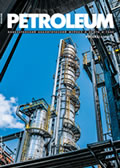Projects
The Innovative Technology of PetroKazakhstan for the Sake of Company and Environment
The Project “Processing Liquid Oily Waste by Centrifugal Separation with the Production of Sales Oil, Purified Water and Waste Solids” implemented by PetroKazakhstan Kumkol Resources JSC won Tech Garden Awards-2022 and also became the winner in the Best Environmental Project nomination.
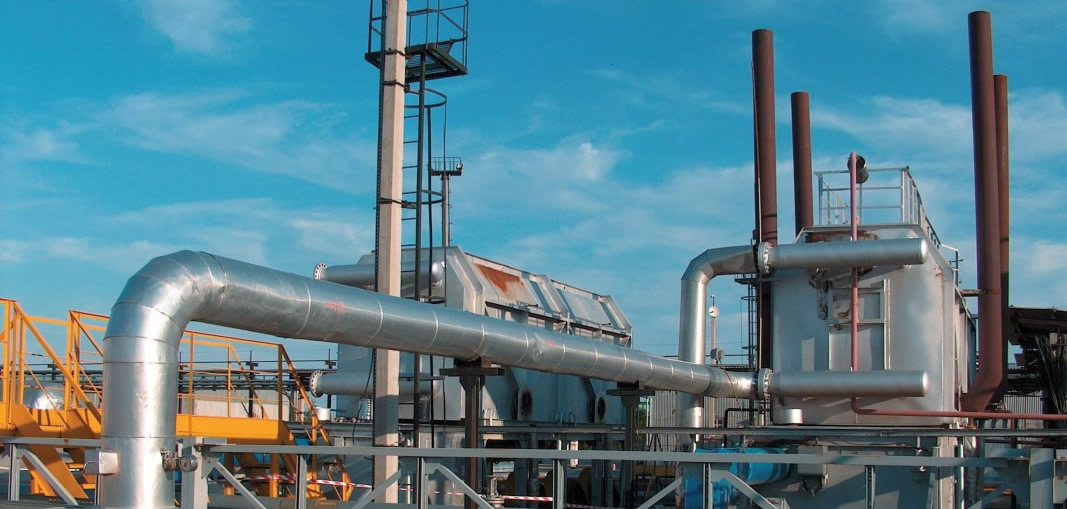
The awards recognition took place during the 5th International Digital Forum “Digital Almaty: Digital Partnership in the New Reality.” The best innovation and IT experts from 30 countries were brought together at the anniversary conference. The competition among industry digitalization projects was held for the first time as part of the Forum. Manufacturing and industrial enterprises that introduce digital solutions into production processes took part in the competition.
PetroKazakhstan’s project has demonstrated a record recovery of the highest quality sales oil from oil waste, which exceeds 98% of potential.
The Minister of Digital Development, Innovation and Aerospace Industry of the Republic of Kazakhstan, Bagdat Musin took part in the award ceremony.
“It is the first time that we award industrial enterprises for introducing digitalization elements into their production processes. Oil and mining industries which are traditional for Kazakhstan should also introduce digitalization elements, and we should encourage this. I sincerely believe that innovations and new process design solutions are also needed in these industries,” Mr. Musin said.
Oil and gas companies are inevitably dealing with complex oil-containing raw materials in the course of production (e.g. stable emulsions and various oil-containing waste), the separation of which by the traditional gravity method is difficult or even impossible.
PetroKazakhstan Kumkol Resources JSC (PKKR) accumulated a significant amount of substandard oil and oil sludge exceeding 10,000 m3 in the tanks during 2000-2022. These are extremely stable emulsions with a high content of mechanical impurities, inorganics, residues of upstream chemicals, refractory paraffins and other substances that cannot be treated by traditional methods.
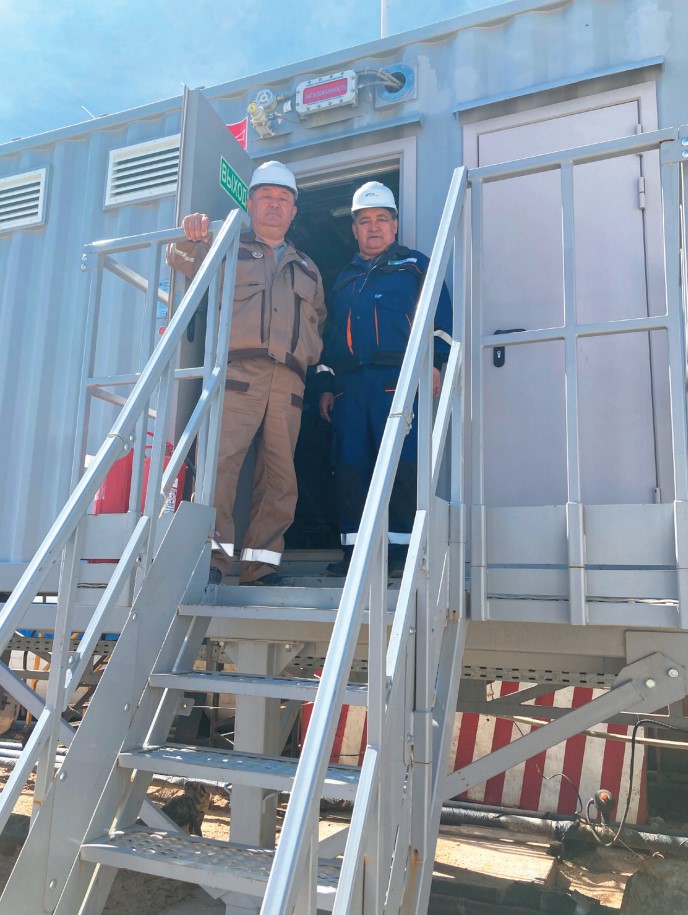
The problem had to be solved, since the accumulation of waste and substandard raw materials for a period exceeding 6 months is not allowed according to the current environmental, sanitary and epidemiology standards.
The PKKR-developed technology is based on the principle of centrifugal separation of stable oil emulsions into components, and utilizes centrifugal equipment manufactured by CTSolutions. The processing products include purified oil of category 1 quality, water purified from mechanical impurities, and wet solid phase scale extracted from processed raw materials.
Four PKKR specialists together with CTSolutions worked on the project. The project was managed by Turarbek Sadakbayev, PKKR’s Chief Mechanic, and A.Yerkebayev, the Lead Mechanical Engineer, acted as the project coordinator. Technically, the project was implemented by A.Baibosynov, the leader of the CPF Group (the central oil processing facility), and K.Dosmukhambetov, also the leader of the CPF Group, together with CTSolutions team, a resident of the Smart Industry Management Platform (SIMP).
The choice of a partner has not been accidental. After evaluating many domestic and foreign providers of services on the digital transformation and Industry 4.0 technologies implementation at industrial enterprises, PKKR experts have acknowledged this particular company to be the best one.
From the moment the task was set, the practical implementation of the project took 3.5 years, starting in December 2019. “We faced many technological challenges in the course of experimental work on waste oil re-treatment, starting from raw materials instability, their tendency to segregation, abnormally high solids content (30 percent or more) to abnormally high hydrophobic properties of solid particles, ” says the Project Manager, Chief Mechanic Sadakbayev. “Two-thirds of solids do not sink in water and tend to form tight plugs at the contact of oil and water, as well as solids in centrifugal equipment. These complications have led to the development of a large number of options for solving them.”
The research showed that solids of the raw material are high-molecular hydrocarbons (with a melting point of 60 degrees, mainly refractory paraffins), and are practically insoluble in all hydrocarbon solvents used. Consequently, a unique solution was found. The stage of interaction with chemical solution and primary separation into three phases (solids, water, and oil suspension) were added at the “head” of the process to ensure continuous and efficient operation of the unit. This solution required an extra process unit based on a three-phase decanter.
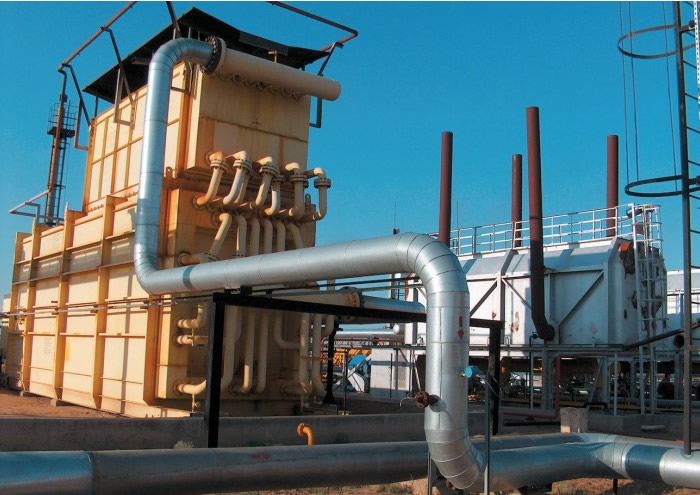
The raw materials are then fed to a three-phase decanter and separated into three phases: suspension (oil with some low gravity solids), dirty water, and solid tailings (cake) that are removed from the process.
Dirty water goes to a WSE unit, where it is cleaned on a self-discharging WSE separator, and removed from the process. Oil is sent to an ODA block and processed by a major process using chemically treated water. The solid phase is deposited on a decanter and removed from the process. This allows substandard oil from Kumkol CPF to be processed efficiently at a capacity of up to 8-10 m3 per hour.
It is worth adding that engineering efforts were implemented, during which the equipment flowchart, composition and design were revised repeatedly in order to improve the technology. The project team had to realign the process five times in total. The final process solution is an improved version of the idea of centrifugal separation as the most efficient physical technique for separating raw materials by density, and allows processing almost the entire range of oil waste with high-quality separation of raw materials into commodity form.
The achieved indicators demonstrate the efficiency of the developed technique and the process flowchart. Thus, the maximum recovery of oil into sales oil has been achieved for the first time in the industry exceeding 98% of potential, as compared with the available best practices, which is only 50-60%.
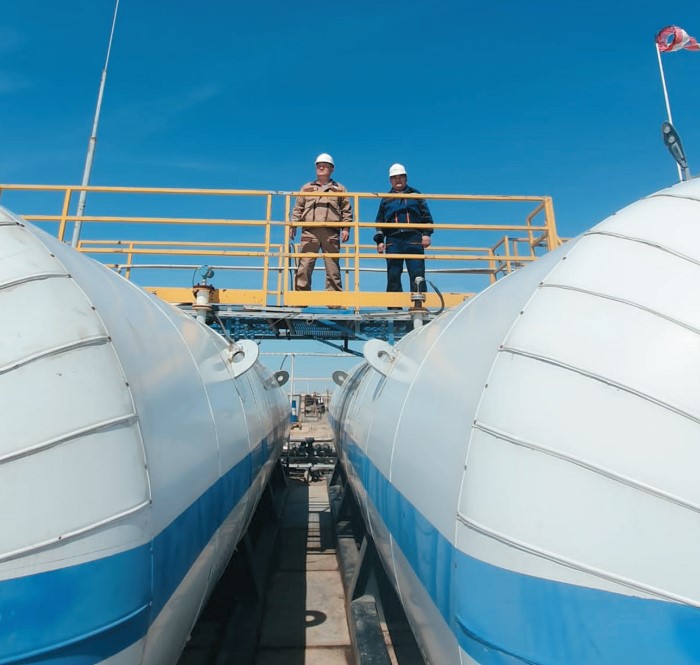
4.2 thousand tons of raw materials were processed during the project implementation period. As a result of processing 2.1 thousand m3 of refined oil, 1.4 thousand m3 of process water, and 1.5 thousand m3 of oil sludge were extracted. At the same time, sales oil yield exceeded 46.8% of the total volume (i.e. 2.1 thousand m3) and more than 98% of the potential.
The environmental results of the project are even more important: a serious reduction in environmental emissions, which helped in eliminating the risk of environmental fines, as well as the fulfillment of R&D obligations in the amount exceeding KZT 132M, and a CIT tax credit. And, finally, a by-effect was achieved such as cleaning an RVS6 vertical tank, from which raw materials were taken for processing.
The developed industrial technology is universal and suitable for all types of oil waste, both new ones and older accumulations. It can also be used for low-gravity oil treatment. Therefore, it can be successfully used on other oil fields in Kazakhstan. The development team is now busy with further improvement and preparation for the industrial application of the technology.
“Drawing attention to the activities of PetroKazakhstan in the development of new technologies has become an important aspect of winning the competition,” emphasizes the Project Manager Turarbek Sadakbayev. “This will enhance the status and significance of our company in the public eye, respectively. We are proud that we were able to develop and implement a useful project for the company, the technological outcomes of which were appraised at the national level. Of course, all this has become an extra encouragement for us to continue working on the project, and a confirmation of the correctness of the chosen course.”



